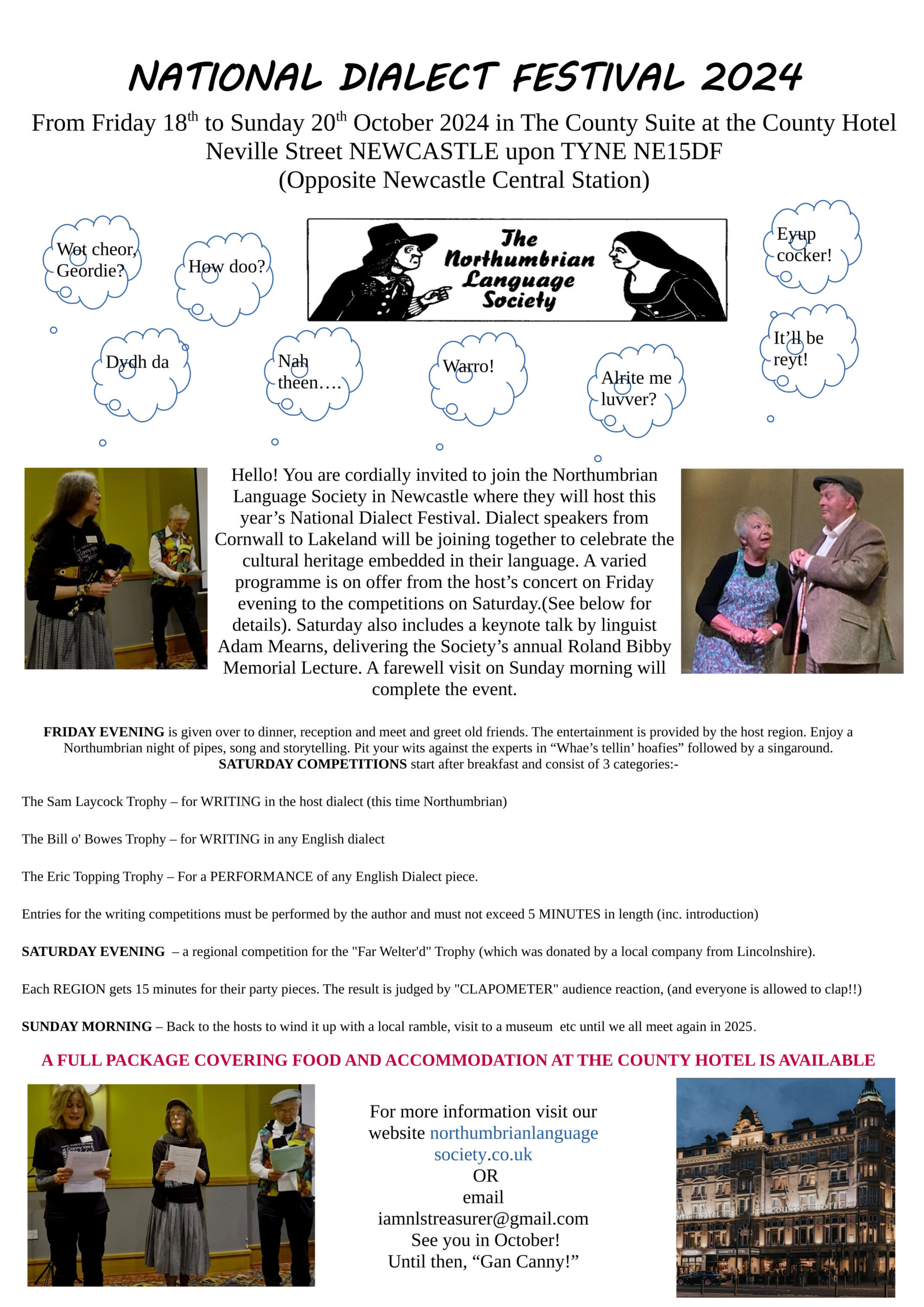The Allure of the Word List
Words are, arguably the chief element that sets the Northumbrian Language apart from being ‘just a dialect.’
Every dialect is built only from words and accents. Our range of unique words, and the richness of shading that their subtle meanings impart to our speech sets us aside from other regional dialects. Accent is merely the sound of our speech – the rhythm, the lilt, the intonations which enable a familiar ear to hear a line of speakers say the same sentence, yet place them to within 10 miles of their origin. All speak the same words, even the same dialect, but the pronunciation differs subtlely.
In the 21st century we are losing the last remains of such distinction in our voices. In the 20th century it was fast waning, and in the 19th century Victorians such as Wright and Heslop recognised that the musicality of the speech of the nation was being eroded, and set forth to collect examples for preservation and study. Much as did naturalists with rare species, they aimed to visit the habitats of rare speech, and collect before it was lost.
The work of these collectors was immense, and the English Dialect Dictionary was the nationwide result. Brockett and Heslop carried on the work within our area, and more localised lists of words in use appeared.
There is a fascination and allure in collecting word lists, and in the 20th Century it has continued, with word lists being created by the Society in the pages of its journal Northumbriana , and in word lists published by the Tyneside & Durham Dialect Society, under the guidance of Bill Griffiths, who also published curated extracts and amplifications of the collection in volumes published by Northumbria University Press. By permission of Tom Richardson, custodian of the now defunct society’s archive, selected material is being re-published here.
Alnwick words 1870
North Shields 2004
Share this content

